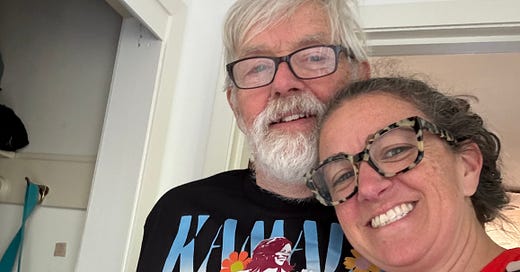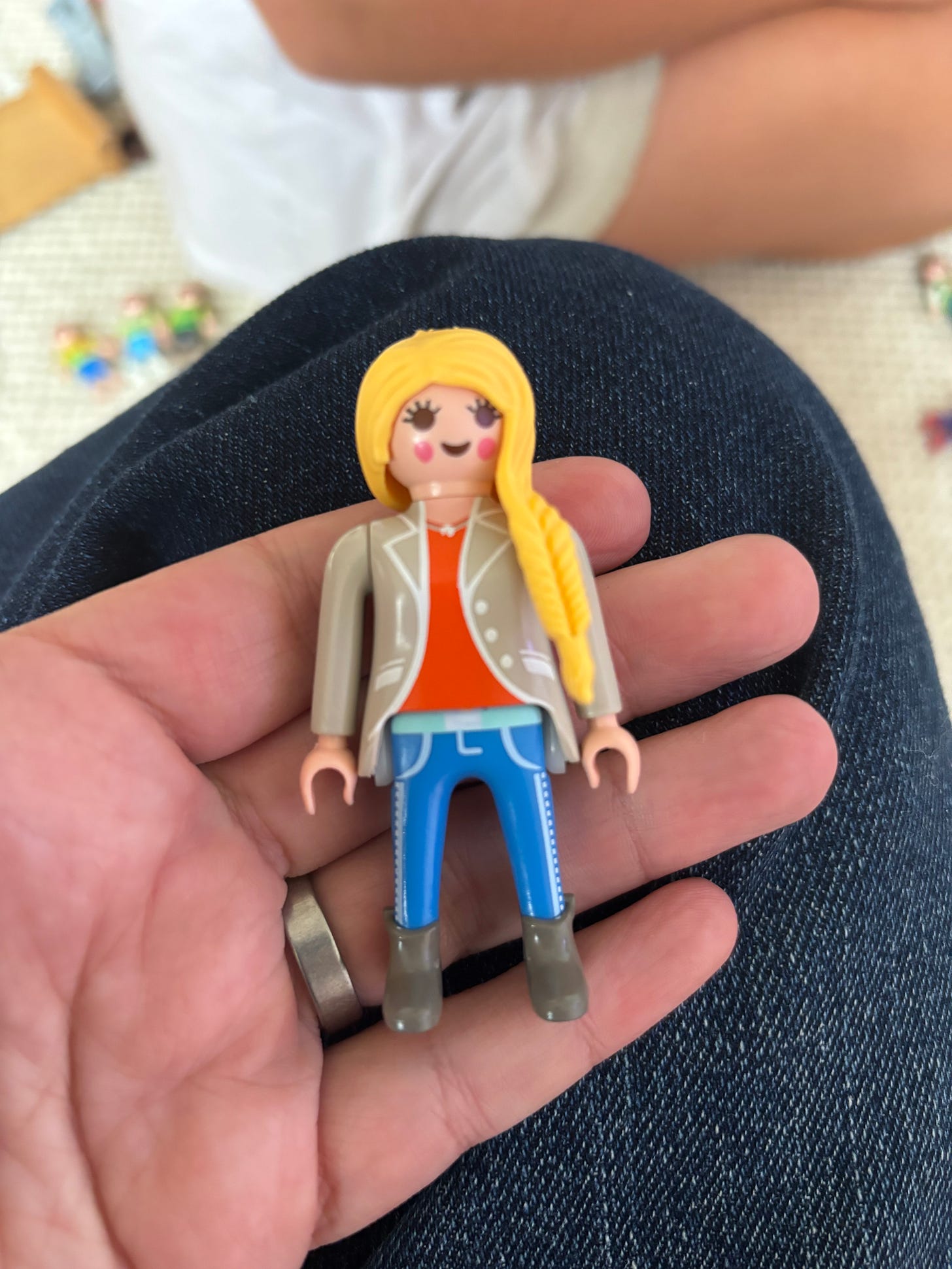“What is the culture of your family? You know—race, religion, that kind of thing?”
The culture of our family…I mull it over in my mind quickly, flashing on snapshots of the structures and rituals that have shaped our family life together. I am doing an assessment on zoom so that Stella, my youngest daughter, can get into therapy to help her with the big transition we’ve been dealing with these last few months—moving towns, schools, houses. She’s wanted to “talk about her feelings with a stranger” for years, thinking it sounds like a lot of fun after watching two different friends do it in 2nd grade. I had held off til I thought she actually needed it. Lately—with her grandpa demanding so much of my attention and her tears over missing friends and feeling lost—it seems like she has a whole lot to talk about with said stranger.
So back to the assessment. How does one briefly describe one’s family culture? I give it a go:
“Well, we lived in a cohousing community for 11 years, so the girls grew up with a sense of intentional living, weekly meals with an extended family of neighbors, chosen aunties and uncles all around.”
“What is that? Like a hippie commune?” the assessing clinician asks.
“Well, not exactly. It’s a place where everyone has their own home but you also have shared amenities, like a garden and common house, and eat meals together and take care of one another. There aren’t a lot of them in the U.S., but many more of them in Europe.”
“Wow, okay. Go on.”
“Now, we live in a multi-generational household with my 76-year-old parents, so they still experience a sense of a village, but in a different sense. My brother and his wife and two kids live a few blocks away. My dad has fairly advanced dementia so they witness us all collaborate on caring for him on a daily basis.
“We are a very artistic family. I’m a writer. My husband is a designer. Their grandmother started a film festival. Their uncle and aunt are both poets. So they’re surrounded by a culture of art, love of books and film, that kind of thing.
“I guess you could say we are an activist family. They’ve grown up going to protest marches and having conversations at the dinner table about racial justice, including our role as a White family to work towards it.
“We’ve started going to a Unitarian Universalist Church near our house lately.”
She looks perplexed: “What did you call that church?”
“Unitarian Universalist,” I say. “They’re sort of agnostic, very focused on nature, social justice, the moral, collective life, that kind of thing”
“Ok, never heard of that either,” she says. “I’ve got to look that up.”
“Sorry I’m not sure now much context to add here, but that certainly gives you a snapshot,” I wrap up.
The clinican looks at me, wide-eyed, and says, “No one has ever answered like that, honestly.”
“Oh,” I say, suddenly self-conscious. “Really?”
“People always say, ‘We’re just White.”
I can’t stop thinking about this: We’re just White. First of all, of course, it suggests that people seeking therapy for their kids are disproportionately White, which doesn’t surprise me, but does lead me to ask a string of other questions (Who has access? For whom does it feel culturally relevant, safe, worthwhile? How could we change that?). Welcome more therapists of color into the pipeline, for starters, and also redesign the onramp to therapy which includes a lot of warnings about how mandated reporters are prepared to take your kids away if they hear anything questionable, enough to make any family with legitimate reasons to distrust the healthcare system to run the other way.
We’re just White.
The other thing that keeps rattling around in my brain is the word just. In this context it signals an absence, a default, an innocence even. When you offend someone, sometimes you try to soften it by saying, “I’m just saying.” If someone offers you something and you don’t want to appear greedy you might say, “I’ll just take a little.”
We—all of us White Americans—are so not just White. Our whiteness elects presidents, determines housing policy, hordes wealth, burns fossil fuels. We don’t do all of this alone, of course, but we do it disproportionately. Right now. Not historically. Right now. This is part of our culture today.
We also worship, work, care for our people, pass on our values to our children, create rituals—intentional and unintentional—within our neighborhoods and communities, go to movies, read books, listen to music and podcasts, and so much more. These choices and actions are also part of White culture, whether we see it as such or not.
The truth is, there is no just anything in this cultural crossroads of a nation of fractured stories, of embattled identities, of worried and sad children. We have to create better, more fuller answers. I’m not claiming mine was a model—far from it—but I am hoping we can learn to see ourselves better and describe our impact more accurately. The time to be just fish in water is long over.
So curious, how would you describe the culture of your family?






Parker Palmer keeps taking the words out of my mouth so my first response is to echo him! He’s rightly referenced MLK, my hero, who converted me to pacifism with his magnificent speech against the Vietnam war on April 4, 1967.
Since then the culture of my family has attempted to practice the virtues of NONVIOLENCE as a guiding principle. This directs our parenting of our children and grandchildren as well as our teaching at Barnard (Courtney and I met) and NYU, where Sharron and I taught for 4 decades. The core problem of our society has long been endemic violence, both domestic and international. Read Rachael Snyder’s “No Visible Bruises” that explains how the most dangerous place for women today in America is their own home. How can we prevent waging wars abroad when it starts in our homes?
It’s a horrible thought that Maya and Stella will grow up in a culture of violence raging all around them in our society, worsened by the outrageous misogyny evidenced in our last election.
But MLK showed us a path of resistance through Civil Disobedience. We need to mobilize a strong movement of nonviolent protest beginning in January to save our children and women’s rights. I’m 86 years old and this could be my last big mass rally so please be there. March with me to D.C.! DD
I love your answer from your family context... and I've been thinking a lot about how white people lack coherent culture. I don't hear "I'm just white" as innocence, I hear it as a lament... that actually there isn't such thing as white culture, because whiteness demands assimilation.
to me the major project of our time is co-creating new inclusive cultures that transcend race. it feels like a daunting task, but also potentially a really exciting one.